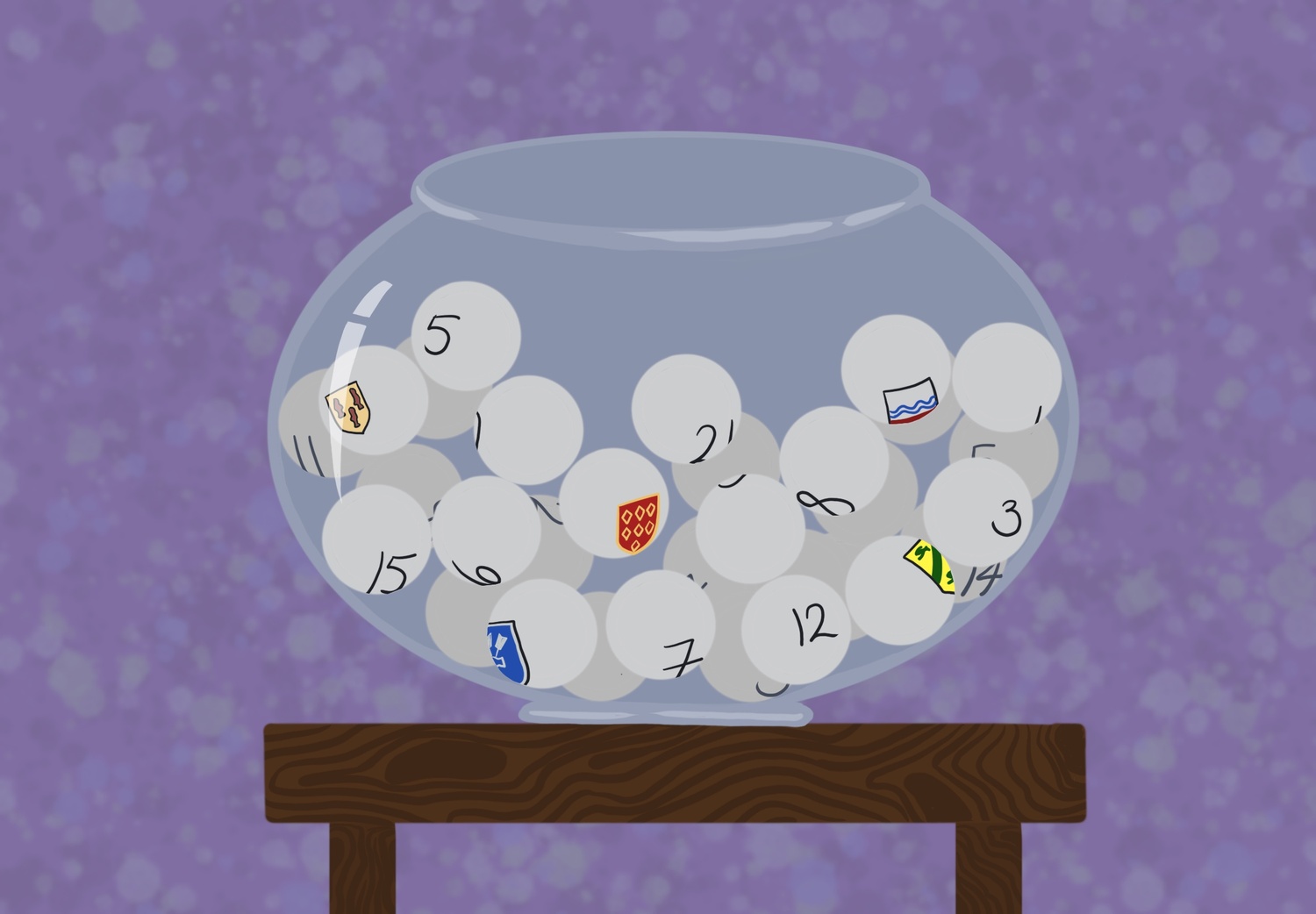
Room & Bored? — Inside Harvard’s Twelve Housing Lotteries
Just a month ago, hundreds of upperclassmen stormed through Harvard Yard in face paint and mascot costumes, dorm walls shaking with chants and cheers as first-years learned their upperclassman houses. The annual Housing Lottery — one of the College’s most iconic traditions — brings joy, chaos, and camaraderie to campus.
As the dust settles, a less Instagrammable lottery begins, impacting the futures of older students: rising junior and senior housing lotteries. Held by each house throughout April, these rituals determine where half of the student population will live next year, and they vary wildly.
While Housing Day is governed by a centralized algorithm, Houses’ upperclassman lotteries are far from standardized. Each House manages its own process: some rely on bingo balls and gamified sticker draws, while others use algorithmically generated rankings and show off sortable, color-coded spreadsheets.
Most lotteries are detailed by five-to-10-page housing lottery handbooks, meticulously crafted by House administrators. Outlining everything from etiquette to how choice order is determined, they present the logistics of housing lotteries but are also peppered with personality and warnings forged by past misfortunes.
“We strongly advise against rooming with someone with whom you are in a relationship,” warns Quincy’s 2024 housing handbook. Kirkland urges residents to avoid last-minute confusion: “Bring your sheets to the lottery so you know exactly what suites you want and aren’t trying to pick your suite off a crumpled post-it or waiting for your friends to text you back in class.”
Even FAQs are less than standardized. For students whose roommates have taken time off, a question in Adams’s lottery packet reads: “I’'ll be long gone, but what will happen to my erstwhile roommate? Will they now have to take sophomore standing, yet one more insult to add to the hurt and abandonment?”
The actual processes of the lotteries differ greatly. Leverett is old-school: students draw balls with numbered stickers and place them on a posterboard to determine selection order. Meanwhile, Cabot algorithmically generates lottery numbers before live room choosing events. In many houses, the process moves at a breakneck pace: in Adams, groups only have 90 seconds to commit to housing before their spot is forfeited.
“It was just a lot going on,” says Charissa J. Shang ’‘26 of Kirkland’s in-person draw last year. “It was really crowded, and even if you pulled a really far back number, it might not necessarily mean that you’re far back.” Now living in Winthrop, Shang praises her current house’s process as “really straightforward.”
For some students, the variation between systems doesn’t matter much at all. João Pedro “J.P.” Rocha Frazão ’26, a Lowell resident, says he cares about the lottery process “as long as it works and we get good rooms.” Others have come to accept the process for how it is: Gowri Rangu ’26, who lives in Adams, described the housing lottery as “a waiting game” and “a little underwhelming.” Still, she says that she’s made peace with the clunkiness, having “reconciled” with the reality of the housing lottery.
In a school defined by cut-and-dry paths, schedules, and structure, the upperclassman housing lottery remains stubbornly human: sometimes boring, sometimes thrilling, and always different. While first-years are sorted into Houses through computer programs and Gen Ed registration hinges on opaque my.harvard lotteries, upperclassman housing lotteries remain filled with organized chaos: paper slips pulled out of hats, strategic planning, and last-minute texts in group chats.
“There’s only so much you can control,” says Rangu.


